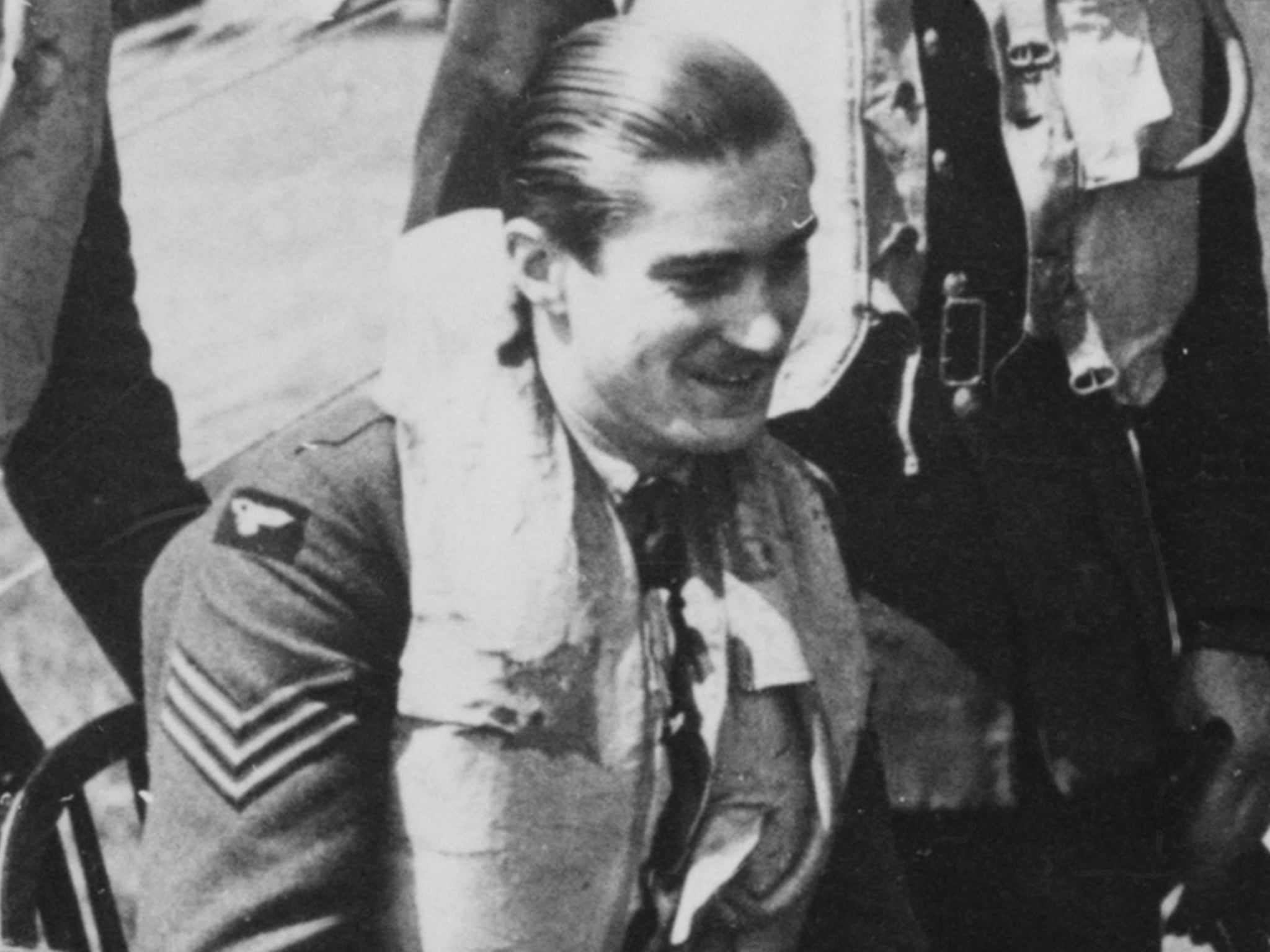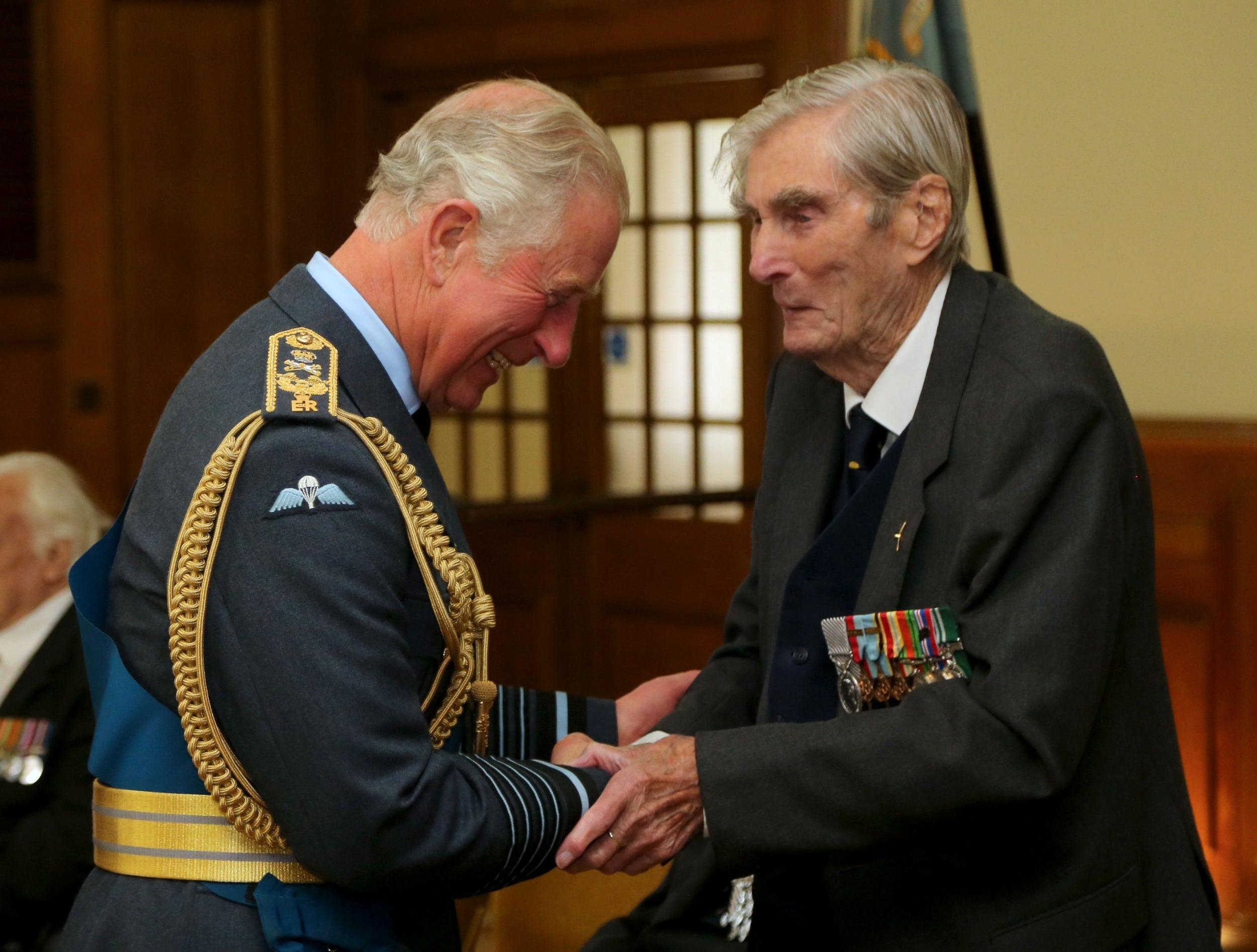Paul Farnes: Last surviving ace of the Battle of Britain
He was said to have made a remarkable contribution to the battle that was a turning point in WWII

Your support helps us to tell the story
From reproductive rights to climate change to Big Tech, The Independent is on the ground when the story is developing. Whether it's investigating the financials of Elon Musk's pro-Trump PAC or producing our latest documentary, 'The A Word', which shines a light on the American women fighting for reproductive rights, we know how important it is to parse out the facts from the messaging.
At such a critical moment in US history, we need reporters on the ground. Your donation allows us to keep sending journalists to speak to both sides of the story.
The Independent is trusted by Americans across the entire political spectrum. And unlike many other quality news outlets, we choose not to lock Americans out of our reporting and analysis with paywalls. We believe quality journalism should be available to everyone, paid for by those who can afford it.
Your support makes all the difference.They are known as “The Few”, the 3,000 pilots who defended the country from Nazi aerial assault in the Battle of Britain during the Second World War. Paul Farnes, who has died aged 101, was one of the last to survive. He was believed to be the only aviator with the distinction of downing five or more enemy aircraft.
The Battle of Britain Memorial Trust credited him with making a remarkable contribution to the battle, a months-long aerial engagement that became the first significant German defeat in the war. In total he was said to have destroyed six enemy planes, probably destroyed another and damaged six more.
Paul Caswell Powe Farnes was born in Boscombe, Dorset, in 1918. His mother died the day after he was born, Farnes recalled in the oral history book Last of the Few by military historian Max Arthur. “My father said the midwife was to get rid of me,” he said, and place him in a home for orphans. “But this lady took a fancy to me – she was about 40 at the time – and she adopted me. I had a wonderful upbringing, just she and I together.”
By 1938, as threat of war loomed, Farnes decided to join the military. At first, he planned to enlist in the navy but decided on the RAF Volunteer Reserve. On 1 September 1939, Hitler invaded Poland, marking the beginning of the war. By then, Farnes had already been called for active duty. He saw his first combat in the Battle of France, which began in May 1940 and ended six weeks later with France’s surrender.
The Battle of Britain commenced in July. Often described as the first major military battle waged entirely in the air, the engagement is considered a turning point in the war because it helped to stop the Germans from invading Britain. At the time, Farnes was a sergeant flying fighter planes known as Hurricanes, which fought the German Luftwaffe in dogfights alongside Spitfires.
“Suddenly you would get a scramble and we would be off,” he said. “Sometimes you would find the enemy; other times it was a wasted trip. It was really a bit chaotic. There were times we know when Hurricanes shot Spitfires down and Spitfires shot Hurricanes down. It was almost inevitable.”
He sometimes flew up to five sorties a day. On one of them, he was following a railway line in southern England when he encountered a German aircraft.
“I thought, ‘Good God,’ so I whipped out and had to reposition myself and managed to get round behind him,” Farnes said. “I gave him a couple of bursts and he crashed at Gatwick just on the point between the airport and the racecourse.

“It was particularly poignant for me, because I landed and the station commander took me over to meet the pilot of the German aircraft. I went to shake hands with him, but he wouldn’t shake my hand. One of the gunners was all right, but the other was killed.”
The Battle of Britain resulted in more than 500 Allied deaths. The sobriquet “The Few” came from a speech from Winston Churchill, who declared at the time: “Never in the field of human conflict was so much owed by so many to so few.”
After the Battle of Britain, Farnes was commissioned as an officer. He served in Malta, north Africa and Iraq, ultimately retiring from the RAF in 1958. He later ran a hotel and became a celebrity among aviation enthusiasts at British air shows.
Farnes sought to honour RAF ground crews, whose care helped ensure the safety of pilots in the air, and he dismissed popular notions of his and other airmen’s courage.
“I don’t go along with this business of people saying how brave we were,” he once said. “It’s a lot of nonsense. I don’t think the average chap was brave at all. He was trained to do a job, and he did the job and he did it well.”
He is survived by two children. A third died before him.
Paul Farnes, fighter pilot, born 16 July 1918, died 28 January 2020
© Washington Post
Join our commenting forum
Join thought-provoking conversations, follow other Independent readers and see their replies
Comments